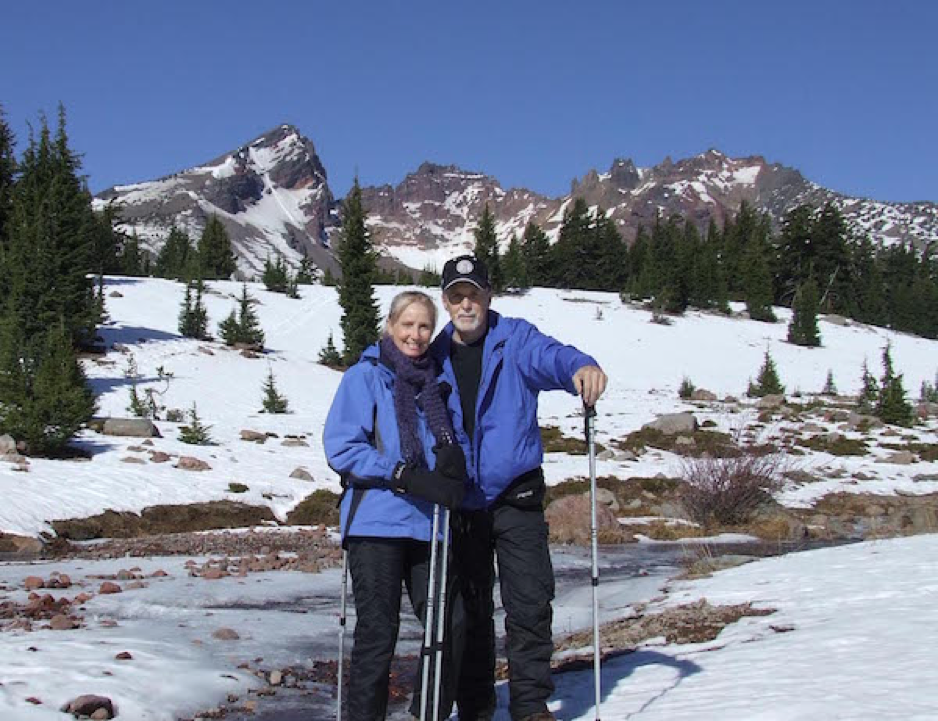A close friend’s husband was recently diagnosed with cancer. They’re saying maybe three, maybe four months. Which reminded me of my own husband’s terminal diagnosis. I’ve often thought, Oh, how lucky was I … because we had the gift of time to say everything we wanted to say to each other.

Marlys and Gary
But there was also the uncertainty. How do you even begin to prepare for such an unimaginable loss? You see it coming as you’re standing on the tracks, a freight train bearing down. But you’re frozen in place, mesmerized by the light.
And you know this rather large thing is going to hit you. And you know it’s going to hurt. Significantly. But you can do nothing to move off the tracks. Or to change the trajectory of the train.
How do you keep hope alive and yet balance it with realism? I remember thinking ahead to Christmas plans that fall. Sun River, a mountain resort village just twelve miles from our hometown and medical care, was an option since we couldn’t be with our kids. “Wouldn’t it be fun to go to SunRiver for Christmas this year?” I said to my husband.
He didn’t make it to Thanksgiving.
Derek Thompson wrote a piece titled “The Secret Life of Grief” that helped me understand what I was experiencing:
“Having time to watch a loved one die is a gift that takes more than it gives.”
Thompson went on to explain what he meant:
“To suffer a loved one’s long death is not to experience a single traumatic blow, but to suffer a thousand little deaths, tiny pinpricks, each a shot of grief you hope will inoculate against the real thing.”
It’s called anticipatory grief. And, oh, how it helped me to be able to name my mess—to know that the uncertainty, the approaching freight train, the mesmerizing light are common among people watching a spouse, child, or parent fade a little more with each passing day.
I got to exchange one hard traumatic blow for those thousand tiny pinpricks of pain as I slowly leaned into the inevitable, as I surrendered what I couldn’t control to God and allowed Him to envelop me in His peace.
This thought from Nanea Hoffman:
“Sometimes grief is a friend you wish you didn’t know but that you have to spend time with because love brought them along to the party. And the party was worth it.”
The party was absolutely worth it.
For those who still have our most prized, irreplaceable loved ones with us, how might we best spend the time with them … while there is still time?
Marlys was the caregiver of her husband Gary who lived ten years after being diagnosed with late stage prostate cancer. After his diagnosis, together they founded a non-profit called Cancer Adventures, sharing their story with groups across the country. After Gary’s death in 2014, Marlys has continued to share the underlying theme of her and her husband’s story: How challenges are a part of life but you have choices. She has a passion for helping people navigate life’s challenges, having negotiated a few herself.
Marlys, you have a way with words. Something many of us have lived through but had no words to describe the experience and pain. Thanks for sharing.
Thank you for your kind words, Carolyn. Doesn’t it help to be able to put a name to what we’re experiencing, and know that we’re (somewhat) normal?!